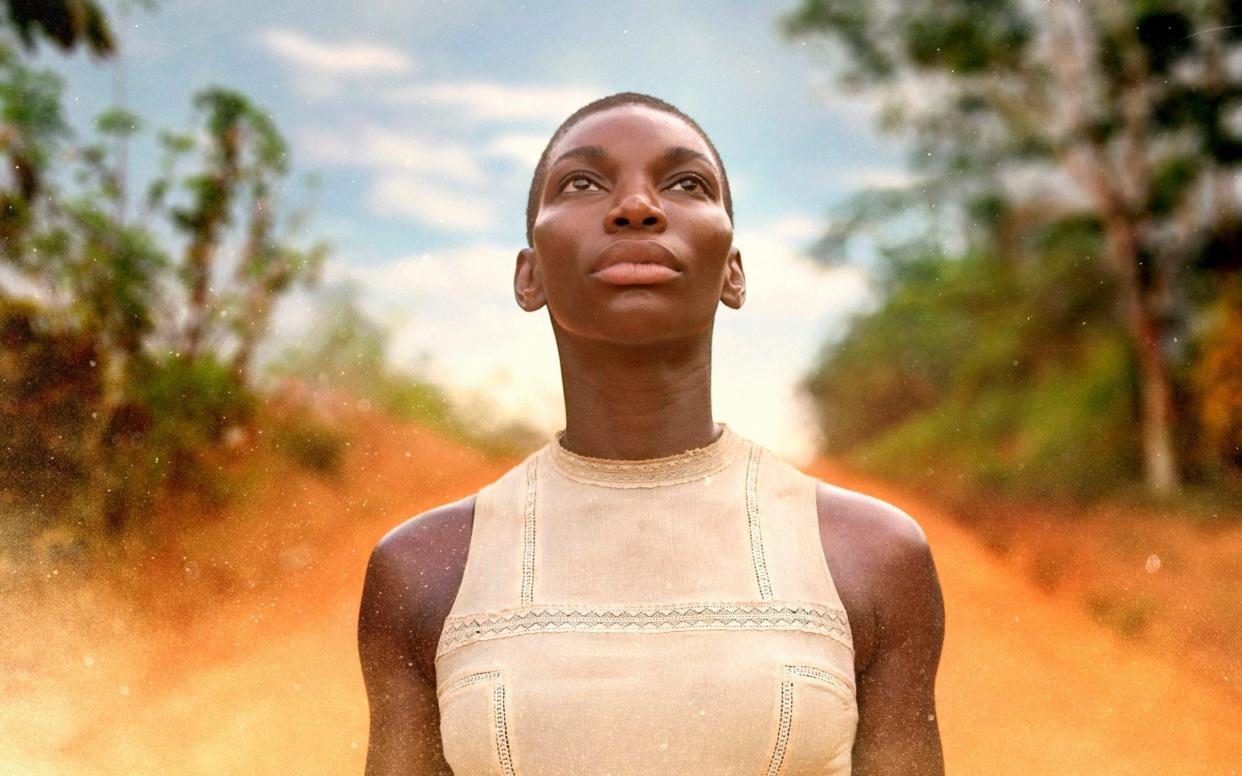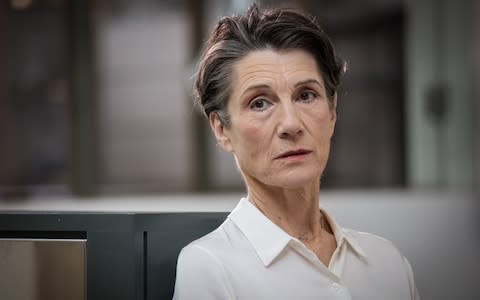Black Earth Rising, review: ethical quagmire made for a bold and gripping thriller

A new Hugo Blick drama is always an event. He is the finest auteur working in British television today and uses big dramas to tell intimate stories. Both The Shadow Line and The Honourable Woman were humane, thoughtful and funny thrillers, rewarding for those prepared to pay close attention while indulging the occasional detour.
The same could certainly be said of Black Earth Rising (BBC Two), which saw Blick wading into yet more ethical quagmires: past and present relationships between Africa and the West, the workings of the International Criminal Court and the difficulties of prosecuting a man deemed a war criminal in one country and war hero in another.
The crucible of these conflicts was the mother-daughter relationship between Eve and Kate Ashby (Harriet Walter and Michaela Coel). The former was an international criminal lawyer prosecuting Simon Nyamoya (Danny Sapani), a Rwandan general-turned-mercenary who helped end the 1994 genocide but now stood accused of recruiting Congolese child soldiers and trading in blood diamonds; the latter, Eve’s adopted daughter, saved from that same genocide and understandably nonplussed at her mother’s pursuit of a national hero.

Blick the director was in complete command of his material, with striking compositions (Nyamoya striding across a border bridge to his destiny) and blackly funny juxtapositions (the pops of a tennis ball machine resembling gunshots) throughout. But he was helped by a formidable cast: Coel, defiant, intelligent, yet with damage lurking near the surface; Walter, dignified but brittle, her moral rectitude undermined by fear that her adopted daughter might find out the (as yet unspecified) truth; and John Goodman, Eve’s long-time colleague and lugubrious ally weighed down with sadness over his comatose daughter and his own illness.
It was bold to begin the series with a lecture, yet this one set the parameters of debate for the whole series, as Eve jousted with a black British student over whether the ICC was just another example of “self-righteous Western paternalism”, or an essential bastion of justice for those who might otherwise struggle to find it. It was even bolder to end with one of Blick’s characteristic narrative tangents, as a curious, tense encounter in a Congolese doctor’s surgery turned bloody.
But while he rarely offers definitive answers to the philosophical questions he raises, Blick’s narratives leave few loose ends. Here, states of the mind and heart are as important as states of the nation. “You want it darker?” asked Leonard Cohen over the credits. Just wait until next week.

